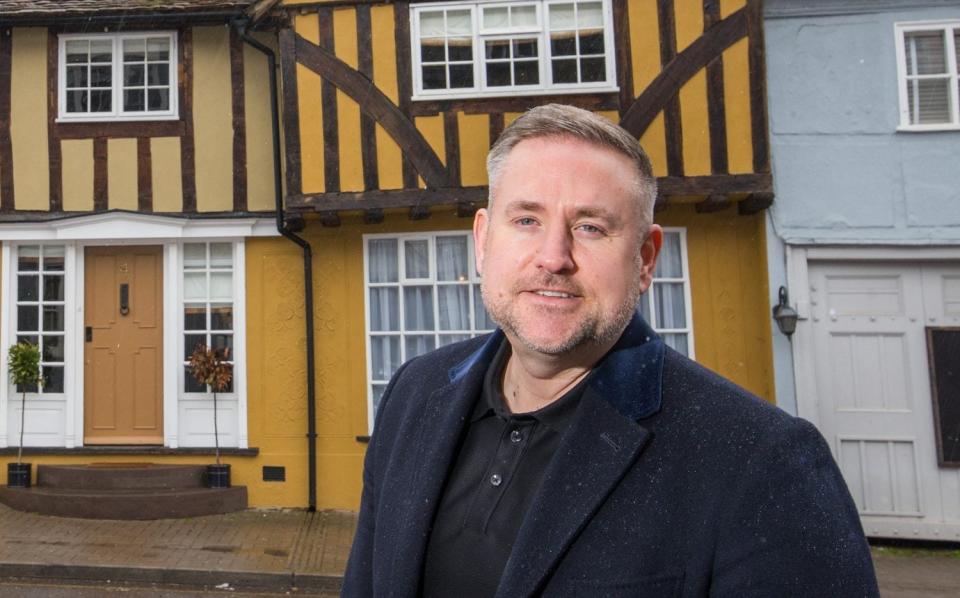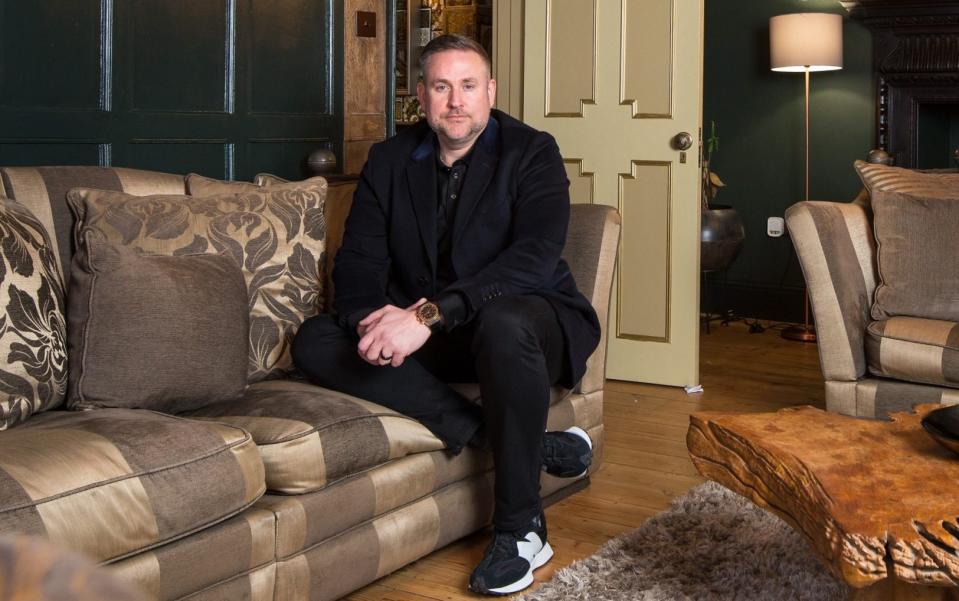How to get rich flipping property – according to those who did

Flipping property was one of the great money-making trends of the last property boom. If you stood in a queue at any Pret-a-Manger in the City of London in the early 2000s, it wasn’t long before you heard someone bragging about their latest property win.
They’d either picked up a flat in Hastings “for a song” and were in the middle of a renovation (a “reno” in today’s language) before selling it on for a significant profit, or were buying an apartment off-plan on a development in Dubai and were planning on flipping before completion.
There are different types of flippers. The “amateur developer” is likely to be a couple who are looking to buy a property cheap, spend a bit on doing it up, and sell it on quickly.
Then there are the professionals who will take on bigger projects, including houses that others wouldn’t touch, which involve greater capital investment and more work but where profits can be greater in the long run. Television programmes such Homes under the Hammer and, more recently, Flipping Fast, have created huge awareness (and therefore competition) for fixer-upper properties.
In the current climate, you need to factor in headwinds which include the increased cost of labour, materials and (where relevant) a slow-moving planning system.
The advice from Damian Murray, 44, who has bought and sold more than 250 properties over the last 23 years, is to play the long game.
When the credit crunch hit in 2007, £4m – the total amount of equity of his portfolio – was wiped out almost overnight.
He’s learned some lessons the hard way. “It’s not rocket science. It will work as long as you follow some basic principles and you have the determination to make things happen.”

What to consider before you flip your first property
Have a plan in place and monitor the progress: it gives you direction, focus and accountability.
“Model your finances, taxes, costs, professional fees and timeline to precision and understand the worst-case scenario,” adds Seb Oliver, co-founder of property advice firm Mayfair Private Office.
No single property will make you rich – it’s about scale and takes time to build up a portfolio. For the moment this is likely to be side hustle alongside the day job, so think about how much time and effort you want to invest.
A two-bedroom apartment is about as complicated as a three-bedroom house: at the end of the day, you’ll be renovating one kitchen and one (possibly) two bathrooms.
“Once you’re coming to the end of the refurbishments, that’s when you should be lining up the next purchase,” says Mr Murray.
When buying, think about where prices will be in six to nine months’ time – that’s when you’ll be putting the property back on the market. If prices are looking to be weakening, then factor that into the offer you make on the purchase.
“Don’t just find the right property, find the right seller – the ones who are motivated to sell,” says Mr Murray.
“Vendors who aren’t at the point where they are having to sell won’t be prepared to negotiate.”

Make friends with estate agents in the area who might then tip you off when a fixer-upper comes to the market.
Mr Oliver says: "Look out for undervalued properties on web portals, auctions or those being sold via probate. Set reminders on web portals for specific areas and track properties that have been on-line for a long period of time and not sold, they may be ripe for a cheeky offer."
Learn from your mistakes
Be generous with your renovation budget and build in a healthy margin of error. First time round, mistakes will be made and challenges will arise that have not been planned because you’re tackling the project without the benefit of hindsight or experience.
Ideally, the turnaround time of the renovation should be about three months. But at the beginning, add another month to the timetable and another 20pc to the budget.
Location, location, location
Think carefully about where you buy. Mr Murray says: “Lots of people on social media will advise southerners to look north where values are lower, but look at the maths first. If you’re going to buy a property for £50,000 with a view to selling at £80,000 that will probably net you £8,000 and nine months’ of travelling. If you have a family of dependent relatives, this won’t work.”
In London, some experts use the yardstick of being within a 15-min walk of a Tube station. Beyond the capital, being close to a mainline station, a well-regarded school, or large employment hub such as a hospital will help with demand.
Roll up your sleeves and get to work
Do the work yourself – about 50pc of it can be done with elbow grease. And don’t get carried away with the interiors, materials or colours – you are not going to live in the property.
Chris Hammond, director at Kent-based property development company Beau Property, says: "Just take a look at Farrow & Ball’s most popular colours for the year and don’t over personalise the choice of kitchen and bathroom."
Remember that presentation of the property once it goes on the market is a huge factor. You have less than five seconds to grab someone’s attention when they are scrolling through property portals.
Professional photos are a must; another option is to use a staging service. Statistics suggest they sell at 8pc higher than non-staged properties and are on the market less than half the time.
Do not be put off by major building issues such as subsidence. Mr Hammond says: “They are quite easily fixed."
While this adds cost and time, and it could make securing a mortgage challenging, it’s here where it’s possible to add some good value. Just make sure before you buy to have a trusted builder come along and give a quote for the works.
Another way to add value is to increase the square footage or be inventive how the space is used. In a one-bedroom flat, ask yourself whether it’s possible to create two bedrooms out of the sitting room and use the existing bedroom as a sitting room, suggests Tomer Aboody, of property lender MT Finance.
What are the pros and cons of flipping houses?
The pros are straightforward: if successful, it will make money – but it takes time. In a survey into property flipping conducted in August 2022 by brokers Finbri, 62pc of respondents said they made between £10,000 and £75,000 profit in the last two years.
Do not underestimate the amount of work involved. As one flipper in the middle of a first-time project attests: “We're in the process of renovating our first home, and while it's rewarding to do things yourself – learning how to tile, to fix the plumbing, knock down walls – it has been tough to live and work in the house at the same time.
"If we spend an evening or weekend away, we feel guilty that we're not working on the house. The mess, the lack of money... TV shows and Instagram accounts don't show you just how tough on you and your family it will be.”
The other factor that can catch people out is the ebb and flow of the market – timing is everything, and you want to try to sell when the market is strong, but this is often out of our control, adds Richard Freshwater, head of residential sales at estate agency Cheffins.
He says: “Property will rarely lose value over the medium term, but the market can fluctuate over shorter cycles.
“It’s therefore always wise to plan for your worst case as well as best case scenarios; if there is a sudden market crash just after you’ve bought your project house, are you in a position to re-gear and retain it for a few years until values recover, perhaps by renting it out in the interim period, rather than having to sell for a loss?”
What are the 70 per cent and 90 per cent rules?
Anyone looking to flip properties, should make a decision on a house when you have 70 per cent of the information: if you hold off until you have 90 per cent of the data you are after, you will have missed out. Don’t be slow or get too emotional.
Mr Freshwater says: “That’s the key with buying a fixer-upper. If it’s a good deal, other people will sniff it out immediately."
What if the project takes longer than expected?
This is perhaps inevitable. Making money from flipping properties is a marathon, not a sprint. That’s why it’s useful to plan from the beginning. Right from the start, have a schedule of where you want to be over the next 16 weeks – and monitor your own progress otherwise it’s so hard to stay on track.
Do not be afraid to tackle work yourself. A professional needs to look after plumbing and electrics but much of the rest should be doable (see YouTube for useful how-to videos).
If you do contract the work out to a builder, have penalties in place for late finishing. Ask them at the start how long they think the project will take and then what happens if those targets are not met.
Can I avoid paying capital gains tax?
As always, consult your tax adviser from the outset. Alongside the mortgage, tax is likely to be the biggest expense of the flipping process.
In a nutshell, those who sell a property which has been let to tenants would face Capital Gains Tax (CGT) on sale, whereas those who sell a property where the intention has been buy-refurbish-sell would be classed as “trade” and incur Income Tax and, potentially, National Insurance on sale.
If you’re a higher-rate taxpayer, this could mean having to pay 45 per cent tax on any profit.
Some will try another route which is to buy the property under their personal name, move in while doing the work and then sell and claim PPR (Principal Private Residence) relief from CGT. This is a risky approach, says Oliver Embley, private client partner at the law firm Wedlake Bell.
“There is no time period which a property needs to be a person's residence to claim PPR relief, but the occupation needs to be with an expectation of permanence,” says Oliver.
“Assuming that 'flippers' do occupy the property as their main residence with the necessary degree of permanence, s.224(3) Taxation of Chargeable Gains Act 1992 states that PPR will not apply where the purpose of sale is ‘wholly or partly for the purpose of realising a gain from the disposal'.”
As such, HMRC may deny PPR meaning CGT will be owed on the sale of the property at up to 28pc on any gains. If there is CGT, the property owner can deduct the costs of purchase (including SDLT and legal fees), sale (including estate agent fees and legal fees) and any capital costs such as building works from the gain.”
Another way to avoid CGT is to give the property (providing it’s worth less than £650,000 and you’re buying as a couple) to a child in a trust fund, recommend the team at The Property Buying Company.
He said: “This is the number one way for you to avoid paying CGT in 2023.”
This involves agreeing to a TCGA Section 260 which allows you to use your lifetime Inheritance Tax-free allowance of £325,000 (£650,000 for a couple) instead of paying CGT. As ever, contact a trusted accountant before embarking on the project.

 Yahoo Finance
Yahoo Finance 